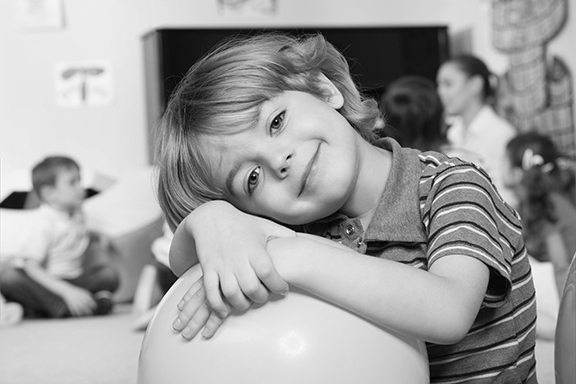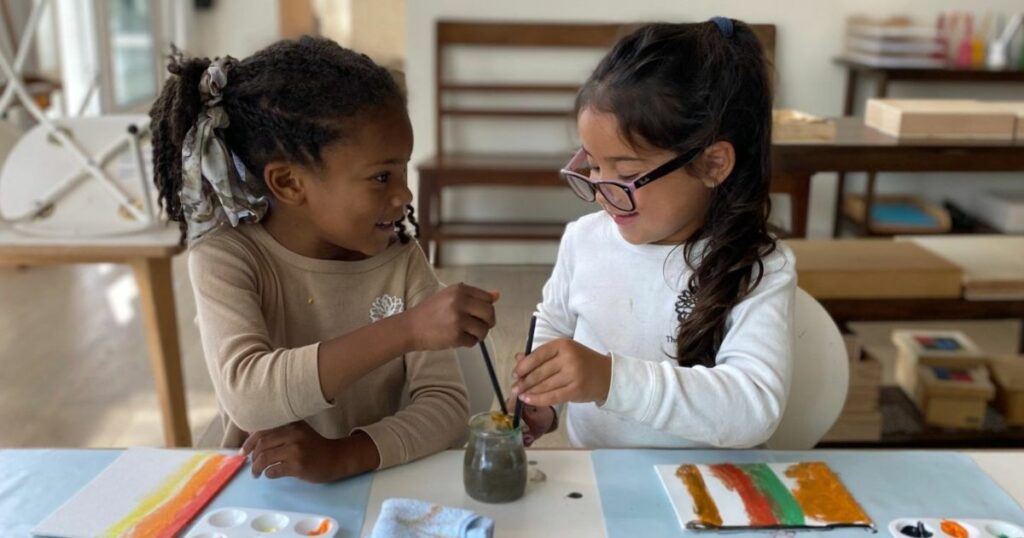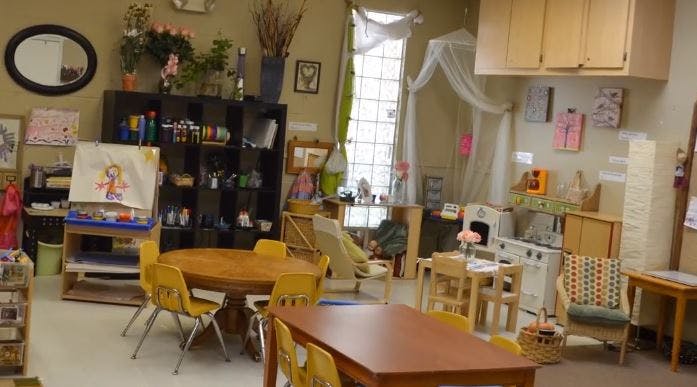Key Area 1: Practical Life
Practical Life activities are the foundation of the Montessori Method. They instill care for self, for others, and for the environment. Activities include many of the tasks children see as part of the daily routine at home, such as preparing food, washing dishes, taking care of clothes, shoes and toys, and personal hygiene.
Key Area 2: Sensorial
Sensorial activities in the Montessori Method allow the child to refine each of his or her five senses. Each of these areas focuses on one quality such as color, weight, shape, size, texture, sound or smell.
Key Area 3: Mathematics
The Montessori approach to mathematics is logical, clear and effective. Using hands-on learning materials that make abstract concepts clear and concrete, children can literally see and explore what is happening as they manipulate the materials.
Key Area 4: Language Arts
In Montessori, language development is supported by a number of activities that stimulate interest in and enjoyment of language. Children are encouraged to express themselves verbally, and are introduced to written language through the use of sandpaper letters and moveable alphabet.
Key Area 5: Cultural Studies
Cultural studies cover a wide range of subjects that include geography, science, botany, zoology, art, music and history. Children are exposed to the larger world beyond their own experience where they explore other cultures, time periods and environments.
In conclusion, the Montessori Method, with its focus on the development of the whole child, is a holistic, child-centered approach that encourages independence, love for learning, and respect for self and others.






